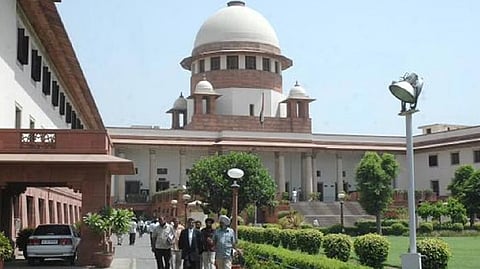

CHENNAI: While upholding the 103rd Constitutional amendment of providing 10 per cent reservation for the Economically Weaker Section (EWS), two judges who had the majority view in the five-judge bench observed that the reservation policy cannot stay for an indefinite period. The opinion of the judges has sparked debates in Tamil Nadu in favor of reservation as well as for revisiting the concept of reservation.
SC judge Justice Bela M Trivedi of the Constitutional bench of the Supreme Court stated that at the end of the 75 years of Independence, it is much required to revisit the reservation policy to ensure transformative constitutionalism in the larger interest of the society. She further noted that for making a casteless and classless society it is essential to revisit the reservations in Articles 15 and 16 of the Constitution of India.
Speaking about the observation, Madras High Court’s senior advocate S Doraisamy said that as per the Constitution of India, reservation is the process to uplift the suppressed and marginalised castes in the country.
“Even as we are standing in the 75th year of Independence, the crime against SC/STs has not come to an end. OBCs are still struggling to pursue their rights. Therefore, the purpose for ceasing the reservation has not emerged now,” the senior lawyer told DT Next.
Senior advocate KM Vijayan differed with the views of Doraisamy and said Justice Bela M Trivedi and Justice PB Pardiwala had correctly opined about the reservation system.
“I don’t want to speak about the entire reservation. However, it is essential to revisit the concept. The modification should be done in a periodical way to ensure that the section which has gotten enough representation is ousted from the reservation system and the one which does not enjoy the reservation should be brought into the concept,” he stated.
He also noted that though reservation has been available in the state since the 1920s, the entries of caste lists have increased now.
“Once a reservation is always a reservation is not good for the country. Article 15 (1) is stressing that no one shall be discriminated against on the basis of caste. Therefore, the reservation cannot be against Article 15 (1) and the concept should not help merely a particular section,” the senior advocate told this newspaper.
Advocate V Kannadasan of Madras High Court pointed out that though the reservation has a certain time limit, it was amended due to the reason that the ultimate aim of the reservation to create an equal society was not achieved.
“As how the reservation for SC/STs has a time limit, the EWS quota should have come with an expiry period. It did not have any factual data about the beneficiaries list. Already, the cut-off marks for OBCs and SC/STs for government jobs shoot up when compared with the EWS section. Therefore, the suppressed and marginalised section should not be in a position to face the harassment again in the name of revisiting or removing the reservations,” Kannadasan said.
Visit news.dtnext.in to explore our interactive epaper!
Download the DT Next app for more exciting features!
Click here for iOS
Click here for Android